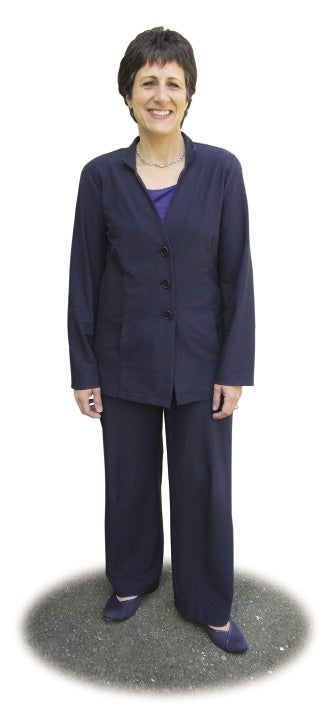Q&A With Vera Tice, Managing Director, Healthcare Delivery Institute at WPI
 PHOTO/RICK SAIA
Title: Managing Director, Healthcare Delivery Institute at WPI
Hometown: Northern New Jersey
Residence: Carlisle
Education: Bachelor's degree, Stevens Institute of Technology;
master's degree, WPI
PHOTO/RICK SAIA
Title: Managing Director, Healthcare Delivery Institute at WPI
Hometown: Northern New Jersey
Residence: Carlisle
Education: Bachelor's degree, Stevens Institute of Technology;
master's degree, WPI
Earlier this year, Worcester Polytechnic Institute announced an initiative aimed at delivering high-quality health care for an aging population. Vera Tice, an engineering research and development executive who has worked in technology (Nokia) and healthcare technology (Philips Healthcare) industries, was named managing director of the initiative, called the Healthcare Delivery Institute (HDI). It will develop mobile and wireless smart phone applications to provide patient care, study the adoption of health information technology systems and mine data now generated and kept by various health-care systems.
What's the chief role of the institute?
Our vision is to enable delivering quality care wherever patients may be. And we want to do that while also reducing costs.
What are some practical examples of technology the institute can develop, or maybe is already developing, to help ease the strain on the nation's health care system and deliver better patient outcomes?
We're doing more than technology. What HDI brings that's of value to the whole problem space is that we provide a systems, technology and process lens. So we are focused on enabling patients and providers to be connected, engaging patients to take ownership of their health care. We're looking at promoting preventative care and we're looking at improving efficiencies throughout the health care delivery system. And we do that by bringing together WPI's signature strengths in a number of areas.
At least geographically, you're in an area where technological innovation meets healthcare delivery in many ways. How have those industries embraced the institute's mission?
The institute has its history in a research center that was started a few years ago and was focused on e-health. And over the last few years the institute has developed close working relationships with seven clinical organizations, six in this area. . So we have a strong clinical focus … and now we are working with extending our partnerships with industry, adding other clinical providers, forming relationships with insurers and other academic and government organizations.
How can you steer more patients toward using innovative technologies?
People are starting to understand … that if they wait for their conditions to continue down a certain track, they're going to end up in an acute-care facility, being treated for different heart problems and other things related to their conditions and diseases. So, people are becoming aware of being preventative and intervening early. With some of the technologies that are being put in place, some of them in the mobile space, the engagement piece is, I guess, the most important, how you get people to use it.
How can you sell older patients on the benefits of technology to help them live healthier lives?
Basically you're starting to look across the different populations in the health care food chain. As you start to get into somewhere in the mid-50s and above, the demographics change in terms of how comfortable people are with technology. But studies … have been finding that as people are engaged with some of these technical tools and they're seeing the value of it, they're getting focused on using it.
How different is this role for you based on your previous roles?
It actually is, in essence, like a startup. Because … we have roots in a research center that was started three years ago by four faculty members that was just focused on e-health. We have expanded since with that group. And so I am growing, using my past experiences in both industries and business and (on) the R&D side in expanding and growing this institute. Basically applying what I've done in industry and running it like a business.
Historically, the technology and engineering fields have been dominated by men. Is that tide beginning to shift and, if so, how do those professions benefit by becoming more egalitarian?
WPI can say that they're doing very well in attracting women into science and technology. And I think the benefit is that you have more of a diverse pool of people who are looking at these problems.
Video
Vera Tice of the Healthcare Delivery Institute at WPI
Read more
Q&A With David Surprenant, Managing Partner At Mirick O'Connell In Worcester
Tailored Medicine: Q&A With Geert Cauwenbergh, RXi Pharmaceuticals Corp. President And CEO













0 Comments